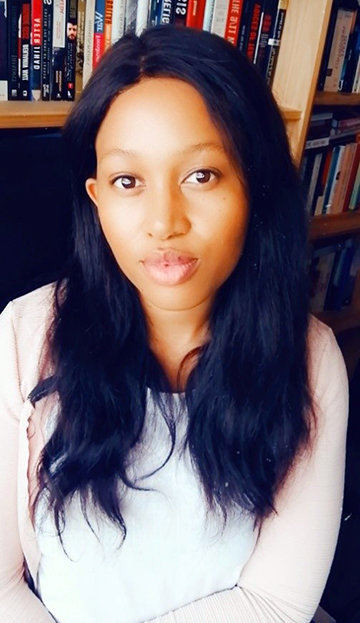News & Events
South African women will not be silenced
If South Africa could speak, it would scream in agony, relaying stories of horror and outrage. It would tell the world how its female descendants have fallen prey to femicide and how seven of them would be killed daily. Its soil would convey the stories of women running for their lives, being dragged through bushes, while fighting for their survival. It would list the names of those who did not survive, while hoping that those who are panic-stricken and filled with anxiety may know safety and peace someday. It would take centre stage and paint a grim picture of women’s lived realities.

Sanet Solomon
Despite the existence of popular slogans, hashtags, and paid campaigns, it would be known that women are not safe in South Africa as over 36 000 cases of rape were reported between 2020 and 2021. A vocal South Africa would highlight how more than 80 men are suspected of gangraping eight women outside Krugersdorp, west of Johannesburg. When women take to the streets singing Senzeni na, Senzeni na? (What have we done?), others would empathise with their pain. Fortunately, celebrations like Women’s Month create awareness and conscientisation of the issues plaguing women daily. Maybe someday, these issues might be addressed more decisively to create a safe environment for all.
Contrary to this, if South Africa could speak, it would ululate in celebration of its female descendants’ achievements. It would celebrate the achievements of, among others, Lalela Mswane, Caster Semenya, Banyana Banyana, and Professor Puleng LenkaBula. It would highlight the strides of women in arts, sciences, technology, engineering, and mathematics. It would pay tribute to Charlotte Maxeke, Ruth First, Helen Suzman, Miriam Makeba, Ingrid Jonker, Naledi Pandor and Fatima Meer. It would record the stories of unsung heroes who dedicate their time, resources, and lives to the betterment of this beautiful country. It would encourage its youth and future descendants to carve out new paths, challenge the status quo, trailblase, and live their best lives in a manner that allows one to celebrate each day, while negating the heteronormative ideas of society. It would tell women to laugh as loud as they wish; be too bold, too ambitious, too outspoken, too courageous, and too ‘out there’– as these, too, are their rights. It would encourage them to colour outside the lines as creativity sparks solutions to daily challenges.
The 20 000 women who marched to the Union Buildings in 1956 set the wheel of change in motion. They challenged the country’s pass laws that required non-white women to carry internal passports. Since then, the country’s laws have become more progressive. Thanks to their heroic efforts, South Africa is a different place in some crucial respects. In 2021, 46% of the South African National Assembly consisted of women, while the National Council of Provinces had a 36% women representation.
While women now occupy high-ranking positions and have better access to education, they still, unfortunately, constitute the highest unemployment rates. Statistics released by Statistics South Africa in 2021 revealed that the female unemployment rate was 34.0% in comparison to that of males that accounted for 31.4%. Additionally, 64.7% of South Africans believed that women earning more than their partners would be problematic. How are these attitudes still possible in the 21st century? Clearly, we have a long way to go to realise the equality aspirations in the Constitution of the Republic of South Africa – something that women who marched against the pass laws under apartheid fought so hard for.
As we celebrate National Women’s Day on Tuesday, 9 August 2022, let us honour the memory of the heroines by taking up anew the fight against the scourge of gender-based violence, let us fly the flag of equality and inclusion by opening the political and economic space for women. Let us, above all, educate our youth that the struggle for equality and freedom (from violence, too) did not end in 1994 and that, in the spirit of ubuntu, we need to be our brother’s (and sister’s) keepers.
*By Sanet Solomon, Lecturer, Department of Political Sciences
Publish date: 2022/08/08
